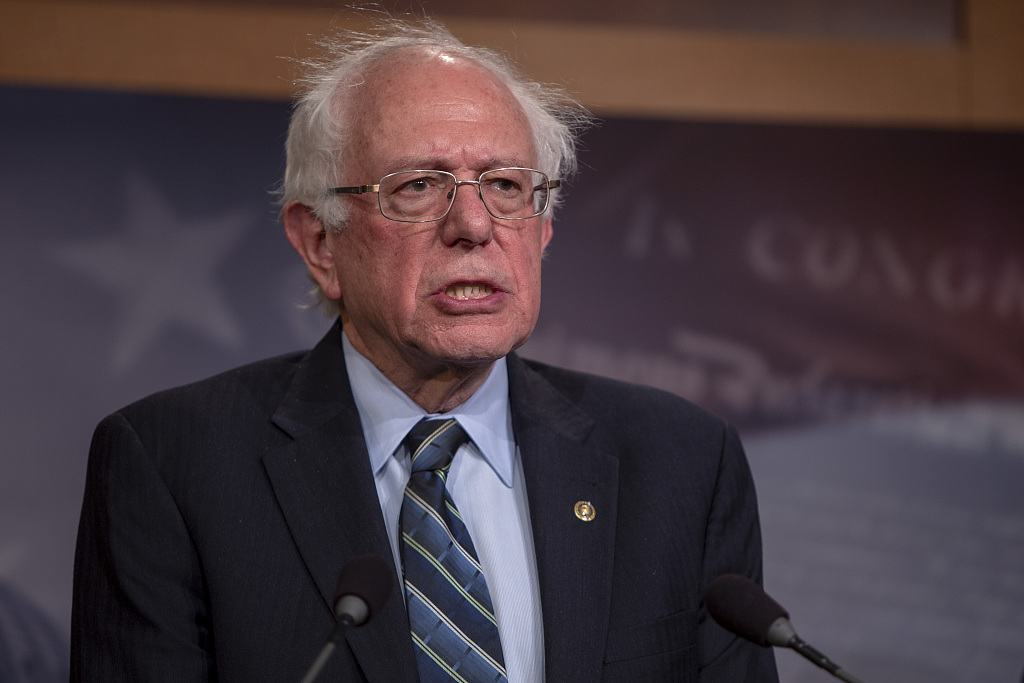
Billionaires have been caught up in the crosshairs of the general election campaign in Britain, mirroring what's been happening in recent years across the Atlantic in the United States.
Still, that hasn't stopped one member of this very elite club, Michael Bloomberg, from offering himself as a candidate in the 2020 race for the White House, where another member is already in residence.
Senator Bernie Sanders, whose attacks on the super-rich have helped to move the issue from the American fringe to the political mainstream, reacted predictably with indignation at Bloomberg's formal candidacy announcement.
"We do not believe that billionaires have the right to buy elections... that is why multibillionaires like Mr. Bloomberg are not going to get very far in this election," Sanders told a campaign event on Sunday.
His persistent drumbeat has now been taken up by Britain's Labour Party, which is campaigning to unseat the Conservatives in next month's Brexit-fueled national vote.
The party has a history of fulminating against the wealthy but is now specifically taking aim at billionaires, claiming that they along with big business have bankrolled the governing party in return for tax breaks worth almost 100 billion pounds (128.4 billion U.S. dollars).
'Obscene'
Labour leader Jeremy Corbyn may have struck a chord with the public when he said on the stump that the "growth of billionaires" had been accompanied by "a growth of extreme poverty in this country."
Britons appear to support the main opposition party's stand. Over half of voters say that nobody should be a billionaire and three quarters believe the richest should pay more tax, according to a YouGov poll.

Bernie Sanders has unveiled an "extreme wealth tax" that targets the top 0.1% of U.S. households and would raise an estimated 4.35 trillion U.S. dollars over the next decade. /VCG photo
Bernie Sanders has unveiled an "extreme wealth tax" that targets the top 0.1% of U.S. households and would raise an estimated 4.35 trillion U.S. dollars over the next decade. /VCG photo
"No one needs or deserves to have that much money; it is obscene," Labour's chief finance spokesman John McDonnell told reporters. "It is also obscene that these billionaires are buying access and tax breaks to Boris Johnson's Conservative Party."
Labour is proposing a new super-rich tax rate, a second-home tax and an inheritance tax plus focused corporate tax raids among its manifesto pledges.
The Conservatives have rubbished the revenue-raising plans. "They want to stop people from passing on their family homes to their children after they die," claimed Treasury Minister Simon Clarke in a statement. "Rather than helping people to succeed they want to take away your family home in higher taxes. Their plans would not hit billionaires – they would overwhelmingly hurt hard-pressed families."
The campaign may be having an effect on its targets, even though the polls have Labour trailing by double figures. "Britain's super rich are running scared of a potential Corbyn victory," headlined an article on the Conservative-backing Telegraph newspaper website.
It quotes Peter Hargreaves, the billionaire founder of fund supermarket Hargreaves Lansdown, as warning that a "lot of people will leave" if Labour wins.
'Harshest tax regime'
"Anybody will look at what they are doing and think, 'Actually, I don't want to work in this country anymore because if I work somewhere else I will be appreciated here. I am smacked for being successful'," he says.
One investment manager went as far as saying that fears among his clients have moved from Brexit to Corbyn and McDonnell.
The Financial Times added its heft to the debate by warning in an article that Labour's manifesto "would create the harshest tax regime on business income among large advanced economies, according to comparable international tax data."
On the other side, the left-leading Guardian newspaper said in a business leader that "Corbyn's warning about the stinking rich could smell sweet to struggling workers."
"Even if they didn't pay tax or spend a penny of their earnings, the time it would take a worker on the average UK salary – about £25,000 – to earn their way to billionaire status is more than 40,000 years – a period equivalent to the entire existence of Homo sapiens in Britain," the paper's report said.
If anything, Sanders, who aims to cut American billionaires' fortunes in half over 15 years, has proved that to rail against the ultra-wealthy is now respectable politics, even in America – a position that is partly responsible for catapulting Elizabeth Warren up the Democratic Party campaign rankings.
But it may not, by itself, be a winning strategy. After all, Donald Trump entered the White House touting his wealth at every opportunity, even praising himself for extending his earnings when he could through tax avoidance.